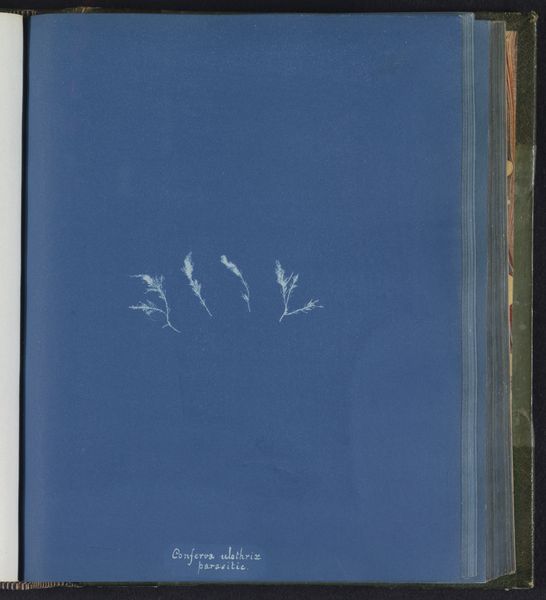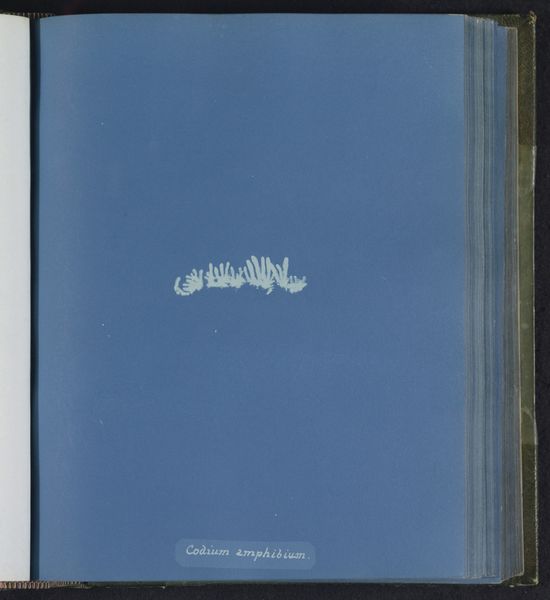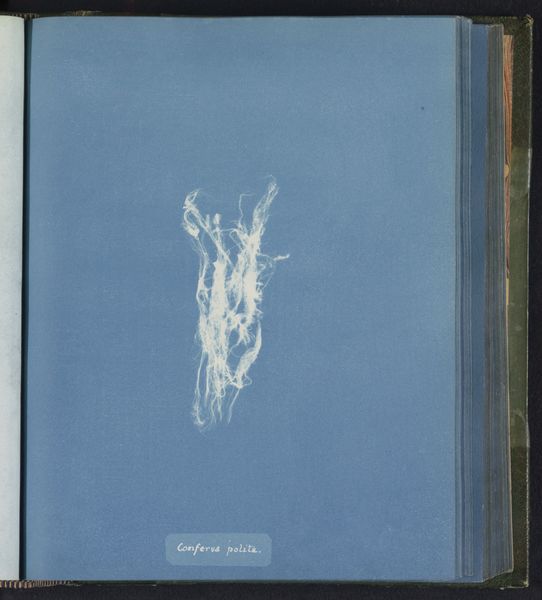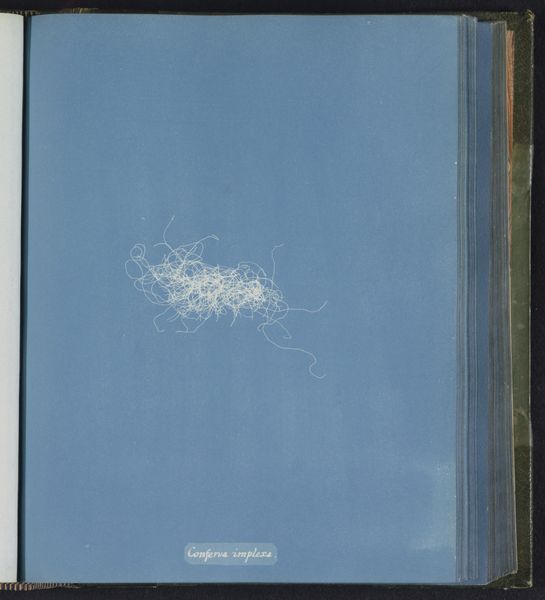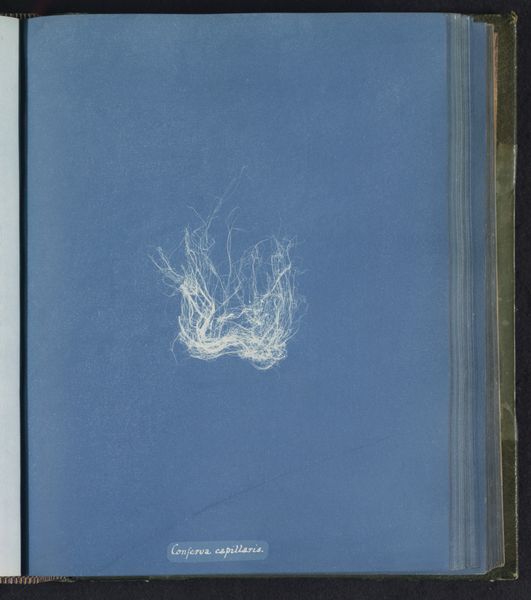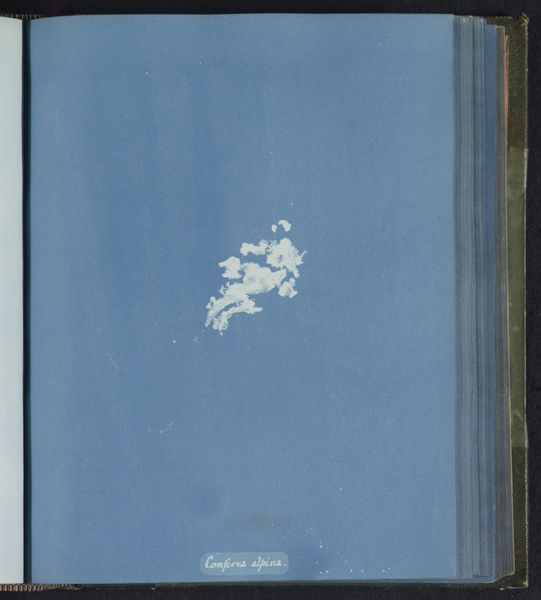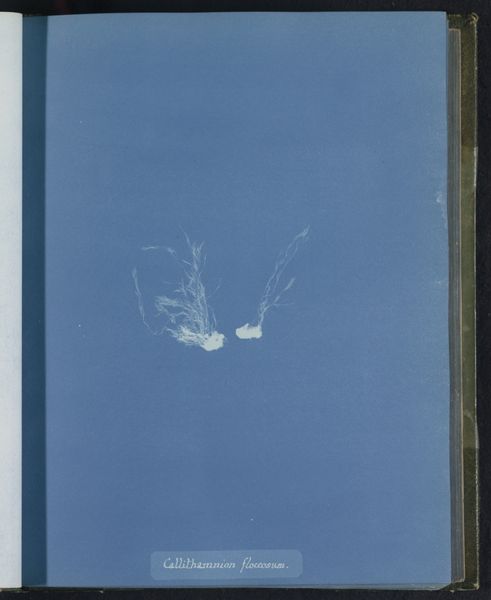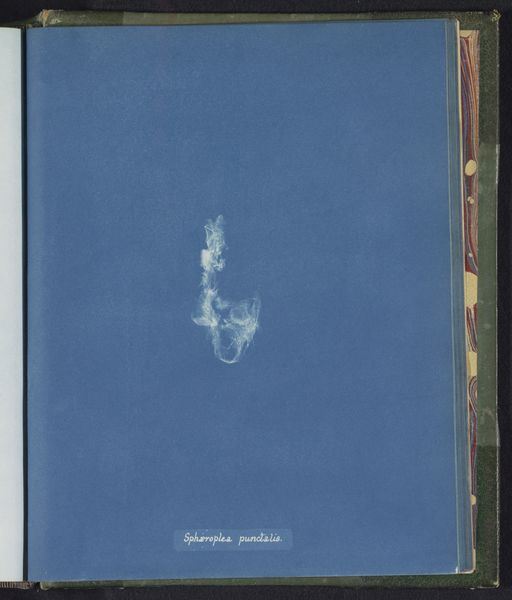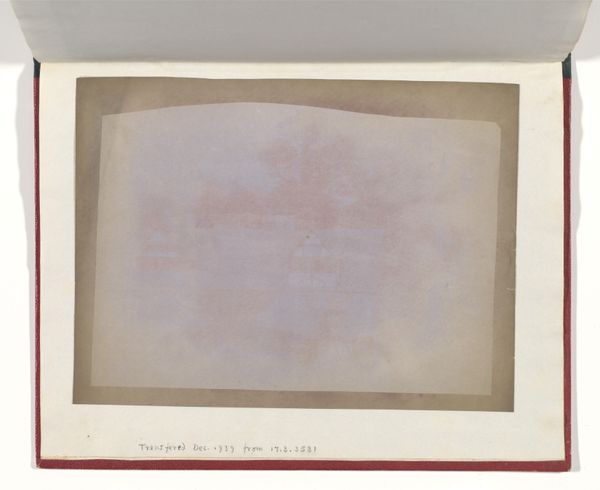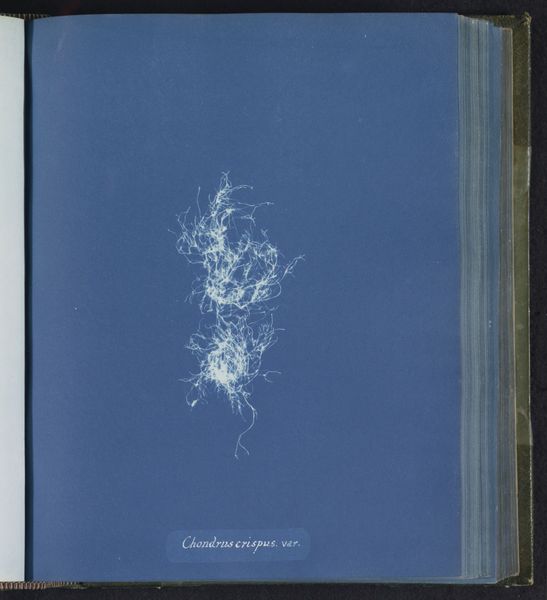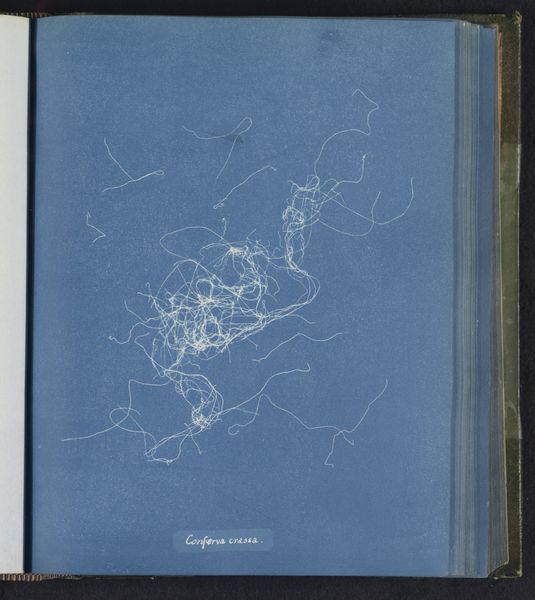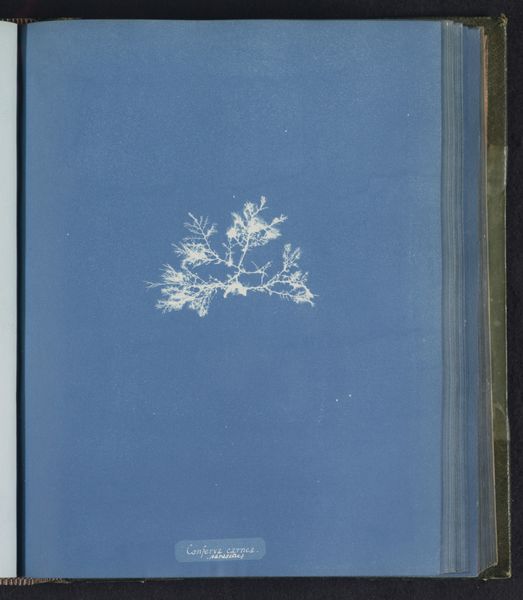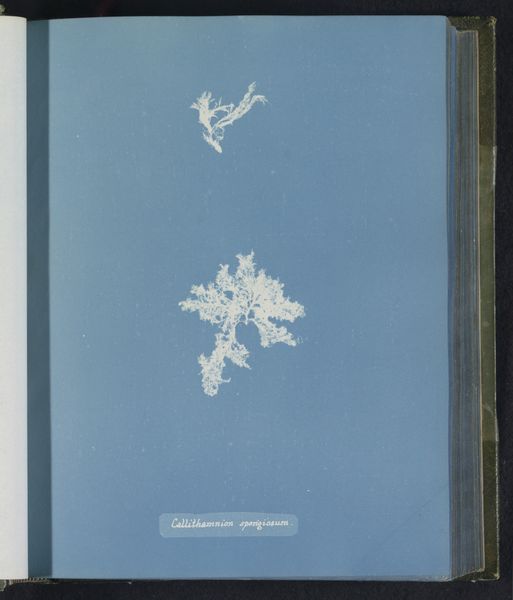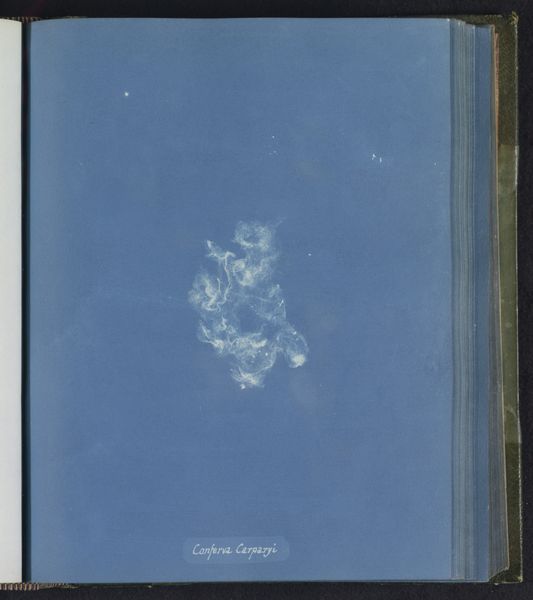
Conferva arenosa / this conferva, a few years ago / covered whole areas in Oxfordshire / and Berkshire c. 1843 - 1853
0:00
0:00
print, cyanotype, photography
#
still-life-photography
# print
#
cyanotype
#
photography
Dimensions: height 250 mm, width 200 mm
Copyright: Rijks Museum: Open Domain
Anna Atkins made this cyanotype of Conferva arenosa in the mid-19th century, a time when photography was still a novel technology. This image, part of a larger project documenting British algae, highlights the intersection of art, science, and the burgeoning field of photography. The cyanotype process, rendering the image in a distinctive Prussian blue, underscores the scientific nature of Atkins' work. Creating this image in England, she was part of a community keenly interested in natural history and classification, spurred by the enlightenment. Institutions like the British Museum and the Royal Society played a key role in legitimizing such studies. Atkins' work challenges traditional artistic norms of the time. It was an early example of photography being used for scientific documentation, rather than purely aesthetic purposes. It questions the role of art and its relationship to both scientific knowledge and social change. To fully understand the significance of Atkins' cyanotypes, we can consider the scientific literature of her time and delve into the archives of scientific societies, appreciating the complex interplay of art, science, and society.
Comments
No comments
Be the first to comment and join the conversation on the ultimate creative platform.
